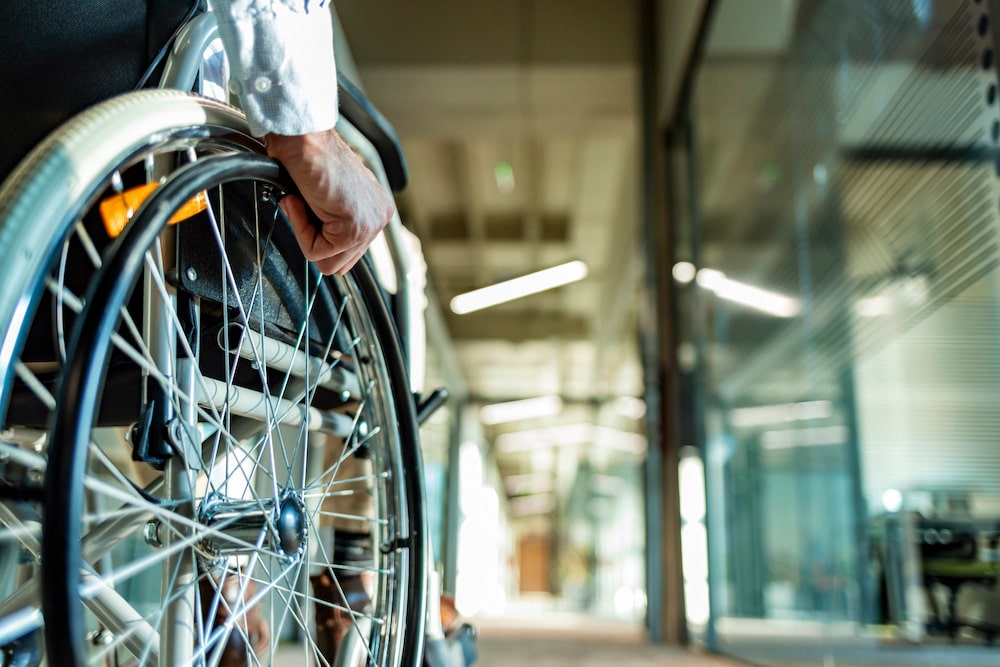Canberrans with disabilities struggle to survive on inadequate support payments, so the Federal Government should remove barriers to the Disability Support Pension (DSP) and introduce a $50 supplement, local advocates believe.
“It is impossible to live in Canberra on the DSP without compromising on housing, utilities, food, clothing, medical bills, and the additional costs that come with having a disability,” the ACT Council of Social Service (ACTCOSS) states in their submission to a Senate inquiry into the supplement’s purpose, intent, and adequacy.
People with disability need to increase their disposable income by half to achieve the same standard of living as people without a disability, but many live below the poverty line of $457 per week, ACTCOSS argues. The base rate of DSP (single) is $23 less ($434.15) and the maximum rate is only $19 above the line ($476.35); ACTCOSS believes this does not take into account the cost of disability.
In fact, a single DSP recipient needs an extra $50 more a week to achieve the same standard of living as someone without a disability receiving a pension.
People with disability faced many additional everyday costs, including transport, housing, medications, and needing prepared food, which the National Disability Insurance Scheme (NDIS) often did not cover, said Kat Reed, CEO of Women with Disabilities ACT.
“It is harder for people to access cheap options or workarounds to minimise these costs. … These additional costs need to be absorbed by individuals within their household incomes.”
A DSP recipient could only afford 0.3% (236 properties) of the private rentals advertised in March; the median rental price for a unit or house was more than their entire income. Last year, ACTCOSS reported, one DSP recipient could not get a ground floor flat in public housing, so ended up homeless, living on the streets.
Both the ACT and the Australian Council of Social Services want the Federal Government to introduce a $50 Cost of Disability and Illness Supplement to meet those extra costs. This would halve poverty among DSP recipients, experts believe.
“If someone has a disability or chronic ill-health that prevents them from gaining or maintaining sufficient work, they should have access to income at a sustainable level that enable them to put food on the table, buy clothes, pay for transport, and afford the many other, often hidden, costs of disability,” said ACTCOSS acting CEO Craig Wallace.
ACTCOSS also wants broader access to DSP to stop people with disability ending up on the JobSeeker payment (which again is below the poverty line).
“Pernicious roadblocks hamper applicants as well as the health professionals who support their applications,” Mr Wallace said.
To be eligible for DSP, recipients’ condition must be fully diagnosed, treated, and stabilised – but episodic and complex disabilities may never fully stabilise, ACTCOSS stated.
Nearly a third (32%) of JobSeeker recipients are physically, intellectually, or psychiatrically impaired, and unable to work 30 hours a week – but cannot access DSP because their episodic condition does not meet medical criteria.
Newstart recipients with a disability are traumatised and distressed by having to search for jobs, even though they cannot work, said Wendy Prowse, CEO of the ACT Disability, Aged and Carer Advocacy Service.
“They manifestly should not be on a labour market transition payment as they are unlikely to be in a position to enter the labour market,” ACTCOSS states.
“There is no basis for denying people access to DSP when their ability to seek, get, and maintain sufficient paid work is constrained by their condition,” ACTCOSS’s submission states.
People with mental illness that varies from day to day are also denied support, said Bec Cody, CEO of the Mental Health Community Coalition. “Mental health is never stabilised,” said a young woman who had been rejected for the DSP. “It’s always up and down – which means ultimately if you have any sort of episodic condition, you’re out of luck.”
ACTCOSS believe that people should receive DSP if they score at least 20 points across Impairment Tables, rather than only being eligible if they score 20 points in one Impairment Table, or 20 points across Impairment Tables and meet the Program of Support requirements (POS) requirements.
The POS is described as helping disabled people prepare for, find, and keep a job. ACTCOSS, however, considers them “an arbitrary and capricious limit on accessing eligibility for applicants for DSP”, serving only to deny or delay access to the supplement, and wants to abolish them.
Centrelink also asks for doctor’s reports, which cost $1,000 to $4,000 – too much for a Newstart recipient on less than $300 a week. One NSA recipient was left with a severe spine injury after a car accident, but was rejected for DSP because his injury was not then stabilised; by the time he paid his bills and medical expenses, he had only $50 a week to feed himself. Others said angry, unsympathetic doctors had shaken their lost trust and confidence in the medical system.
“Reforms to the payment must remove unreasonable barriers to eligibility and recognise that it’s impossible for people with disability to survive on $44 a day, especially in a city like Canberra,” Ms Prowse said.



